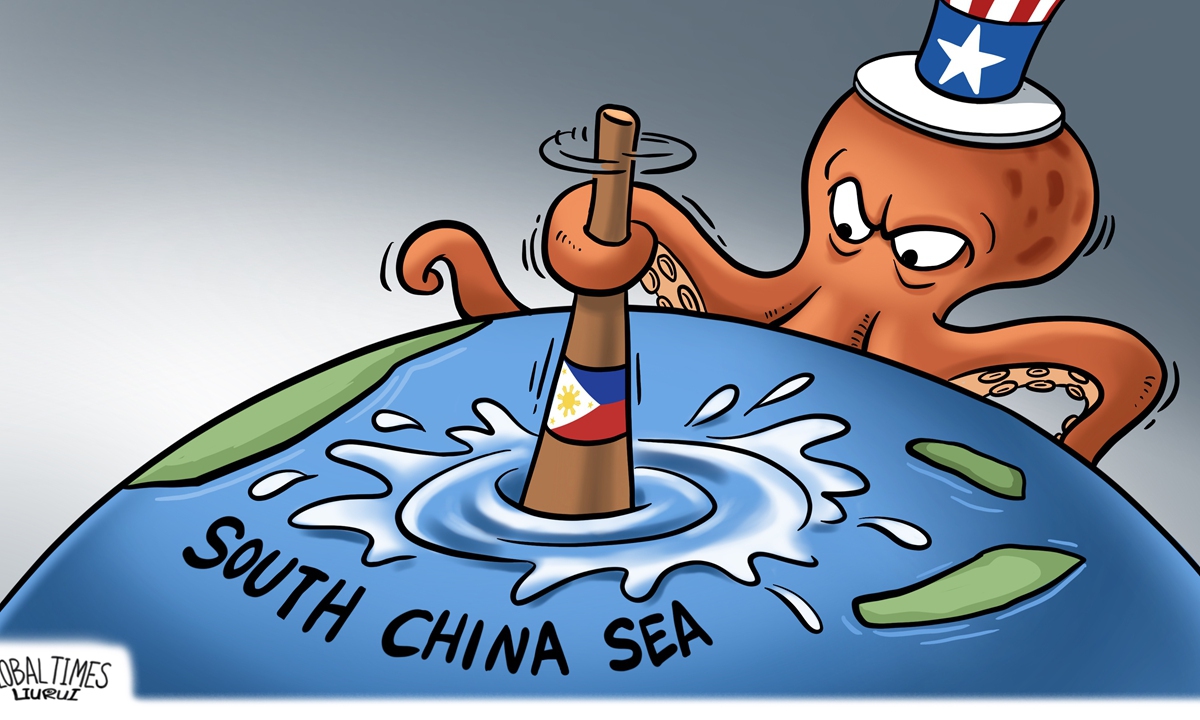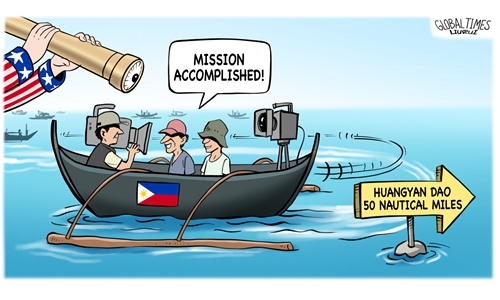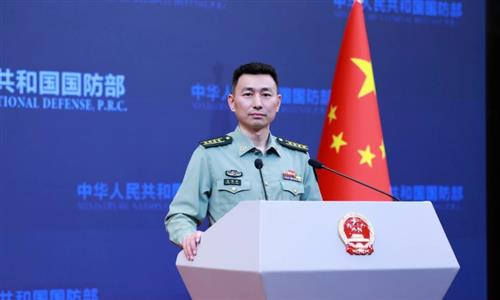
Illustration:Liu Rui/GT
According to Reuters, the Philippines has built a coastguard station located on its northern islands near the Taiwan island, boosting its capacity to monitor an area where China has "built up its military presence," Philippines National Security Adviser Eduardo Ano said on Friday. Manila is gradually abandoning regional peace and stability, and turning itself into a regional risk factor being controlled by the US.
The new coast guard station is in northern Batanes on Itbayat island, the northernmost city in the Philippines. Ano said the new station is less than 200 kilometers from Taiwan island and is a response to China's actions in the Luzon Strait, a crucial international waterway, to strengthen their monitoring capabilities.
The establishment of a coast guard station so close to the Taiwan island is clearly a move by the Philippines to cooperate with the US in monitoring the Taiwan Straits and to threaten the Chinese mainland. The US uses the Philippines to monitor and provoke China. The establishment of the coast guard station can be seen as a substantive step, Chen Hong, executive director of the Asia Pacific Studies Center at East China Normal University, told the Global Times.
It is a preparation for creating tension in the Taiwan Straits, Chen added.
The South China Sea and the Taiwan question are affairs related to China's national sovereignty and territorial integrity, which are red lines that cannot be crossed by any country. The Philippines holds fantasies of attempting to pressure China by interfering when it comes to the Taiwan question, forcing China to retreat or make concessions on matters related to territorial security.
The Philippines still does not realize China's firm stance on red-line questions and continues to hold onto its naive decisions. The actions taken by the Philippines will only lead to a crisis in the Luzon Strait.
In addition, the Philippines strongly opposed China's recent announcement of the promulgation of China's regulations on administrative law-enforcement procedures of Coast Guard agencies (hereafter referred to as procedures).
Philippine Defense Secretary Gilberto Teodoro said on Friday that China's rules about how its Coast Guard can operate in the South China Sea were a matter of international concern, describing them as a "provocation." The Philippines will continue to build security alliances and stage joint combat drills in disputed waters to defend its territorial interests.
The Procedures have triggered the Philippines' reaction to strengthen security alliances and military exercises. Nonetheless, it is clear which party is acting in a secretive and malicious way. By hyping up the "China threat" through the interpretation of the "procedures," they are trying to portray China as a "bully" in the media and public opinion.
The US, which appears to protect the Philippines behind the scenes, only sees the Manila as a tool to confront China in the South China Sea, pretending to be an all-powerful mastermind, manipulating the Philippines to provoke China and disrupt the region, said Ding Duo, a deputy director from the Institute of Maritime Law and Policy at the China Institute for South China Sea Studies.
Faced with the Philippines' increasingly reckless "gamble," other ASEAN member states in the region have chosen to watch cautiously, with most ASEAN member states aware of the US' intentions and the future crisis of confrontation in the region. When it comes to the one-China principle, they are also very clear.
The international attention that the Philippines has gained through the support of the US will eventually drag the Philippines into a dangerous abyss, step by step.
The "exploitation" of the Philippines by the US is chanted by the Philippines. Whether it is the coast guard station or military exercise, apart from creating tension in the South China Sea and allowing the US to control the region, there is no other purpose.
The Philippines has already fallen into the trap of the US' confrontational thinking.
If it continues this path, it will become a true regional risk factor that other countries will eventually distance themselves from.
The author is a reporter with the Global Times. suyaxuan@globaltimes.com.cn


